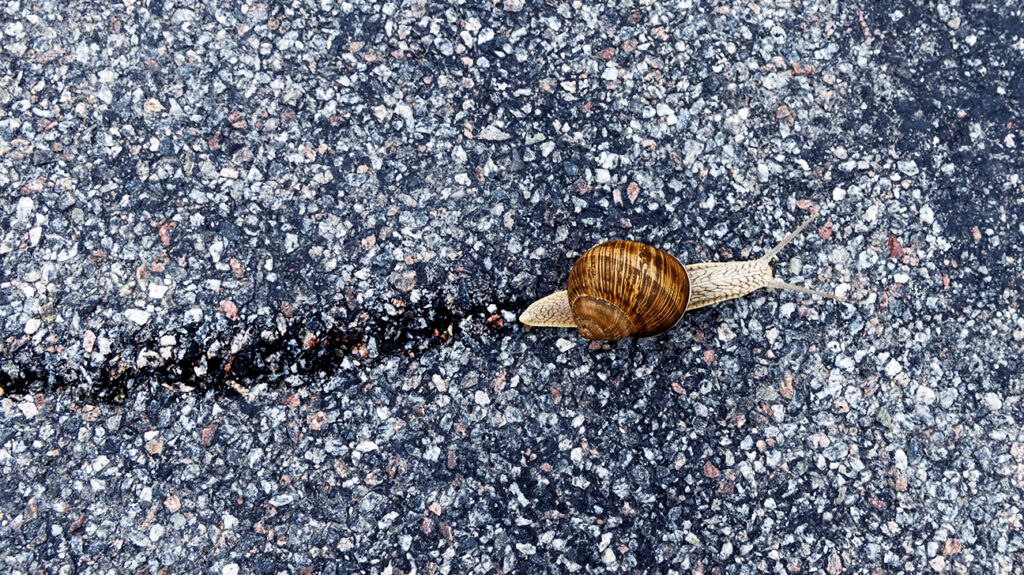Snail mucin is part of the mucus or slime that snails produce. It has beneficial properties and is a component in some skin care and health products. However, research is limited in examining its effects on eczema.
Eczema, or atopic dermatitis, is a condition that causes dry, itchy, and irritated skin. Treatment involves hydrating the skin, restoring the skin barrier, managing inflammation, and other goals.
Snail mucus, which contains mucins, helps snails prevent moisture loss. It can aid with wound healing, inhibit bacterial growth, and more. Although it is unclear if snail mucus can specifically help with eczema, scientific evidence suggests it may benefit the skin.

Mucins are protein molecules that partly make up mucus. Snail mucins are a main component in the slime, or mucus, that snails discharge. This mucus helps snails move while protecting them from injury and dehydration.
Due to its characteristics, people have historically used snail mucus to help treat wounds, burns, and other health issues. Snail mucus
For example, according to a
Due to these properties, some skin care, cosmetic, wound-healing, and other commercial products contain snail mucins and mucus. However, more research is necessary to fully understand snail mucin and its benefits.
Some skin care products use snail mucus, but there is limited research on how snail mucin affects eczema. However, scientific evidence suggests that snail mucin could help with skin hydration, protection, and inflammation.
Treatment for eczema includes hydrating the skin, and studies suggest that snail mucin may help with skin moisture levels. A 2022 study on mice found that oral supplementation with snail mucin prevented water loss due to ultraviolet B (UVB).
Another study from 2019 concluded that a cream with 2% snail mucus had a moisturizing effect. In addition, older 2010 research found that snail mucin filtrate helped restore the skin barrier in subjects with eczema. The skin barrier helps retain moisture.
Exposure to environmental pollutants can cause or worsen eczema, and snail mucus may help protect the skin against pollutants. A
Snail mucin also has anti-inflammatory properties, and inflammation is part of eczema. In a 2023 study, snail mucus had anti-inflammatory activity in tested cells.
Learn about treatment for eczema.
While snail mucin is gaining popularity due to its potential benefits, more research is needed to understand it and determine who should avoid it.
It is important for a person to avoid snail mucin if they are allergic to snails or snail mucin products. Burning, itching, rash, or blisters on the skin can indicate an allergic reaction.
It is important to avoid products that irritate the skin or cause adverse reactions to help prevent eczema from worsening. A person with eczema can talk with a doctor about which products are appropriate and safe to use.
When choosing eczema-friendly products, it is important to note that what works for one person may not work for someone else.
People should avoid products with fragrances, dyes, alcohol, and chemicals that irritate the skin. Eczema-friendly products could include petroleum jelly, prescribed eczema medications, and other hypoallergenic ointments or moisturizers.
According to the National Eczema Association, the following ingredients may help with eczema:
- shea butter
- oat butter
- glycerin
- hyaluronic acid
- vitamin E
- humectants
- aloe
- niacinamide
A person can consult a doctor about which products to use for eczema.
Eczema resources
Visit our dedicated hub for more research-backed information and in-depth resources on eczema.
Snails produce protein molecules called mucins. These mucins partly comprise the mucus that snails release for hydration, movement, and other purposes.
Snail mucus has wound-healing, anti-inflammatory, bacteria-inhibiting, and other beneficial properties. While it is unclear if snail mucin can specifically help with eczema, evidence suggests snail mucus and mucin may aid with skin hydration, inflammation, and protection from pollutants.
People should not use snail mucin if they are allergic and consult a doctor before using snail products or other skin care on eczema. When choosing eczema-friendly products, it is important to avoid fragrances, scents, alcohol, and irritating chemicals.

